How much does it cost to raise a child?
The rising cost of raising a child is reportedly stressing millennials out
Millennials have reported sticker shock at how much it costs to raise a child, according to a new "Better Money Habits" study from Bank of America. More than half said they underestimated the cost, while almost half said they feel restricted in what they can do financially due to the high cost associated with parenthood.
The study surveyed 1,903 Americans between the ages of 18 and 73, however, the report noted millennial respondents between the ages of 24 and 41 as a standout from other generations over their childcare concerns.

To raise a child born in 2015, the projected cost is $233,610, according to the U.S. Department of Agriculture's last "Expenditures on Children By Families Report" in 2017. A more recent report from Merrill Lynch also echoes this six-figure price tag, which factors in grocery, health, education and childcare costs necessary for raising a child to the age of 18.
Of course, these figures vary by region. The cost jumps up to $264,090 in the urban Northeast, which also happens to be the most expensive area to raise a child, according to the USDA's findings.
CHILD CARE THIS SUMMER WILL COST PARENTS NEARLY $1K, SURVEY SAYS
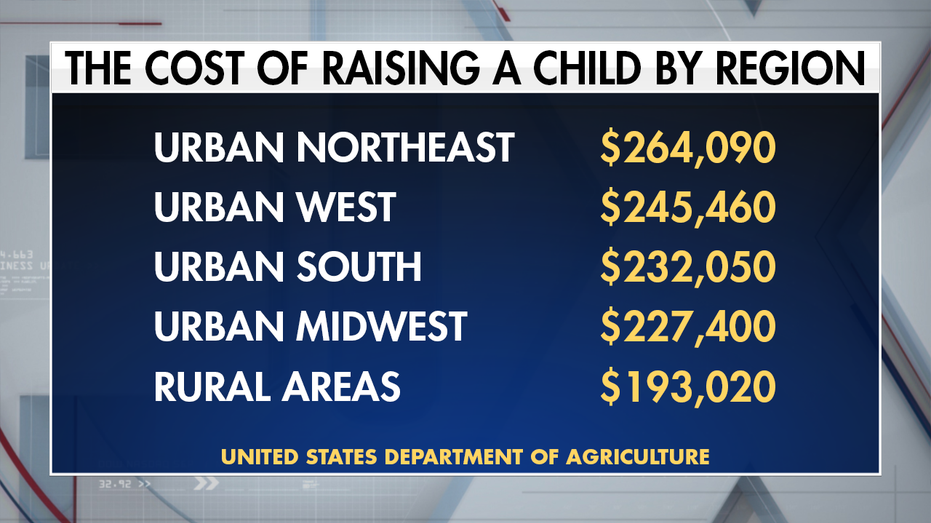
Rural areas are the least expensive to raise a child with $193,020 on average. Likewise, the annual housing cost per child was said to be $3,900 in urban locales and $2,400 in rural ones.
HERE'S HOW MUCH AUTISM CAN COST AMERICAN FAMILIES
Annual food costs for infants age two and under have the least expensive, which is estimated to be $1,580. By ages 15 to 17, that annual food cost climbs up to $2,790.
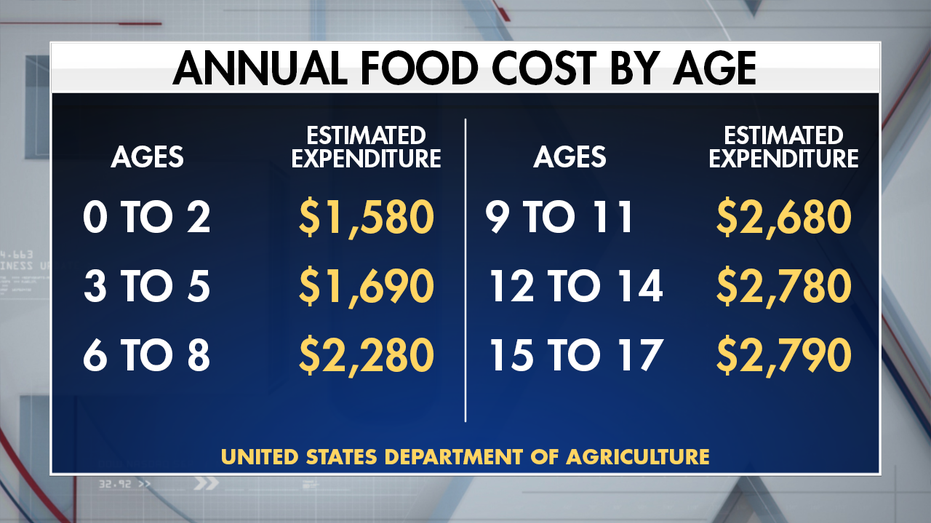
Further broken down, food is said to make up 18 percent of the total child-raising cost, while housing makes up 29 percent, transportation makes up 15 percent, health care makes up nine percent, clothing makes up six percent, child care and education make up to 16 percent and miscellaneous costs make up seven percent.
As a result of these many expenditures, 59 percent of millennial parents admitted that they didn't realize how much it costs to raise a child in Bank of America's study. Another forty-eight percent of millennial parents admitted that they feel restricted in what they can do with their money because they have children.
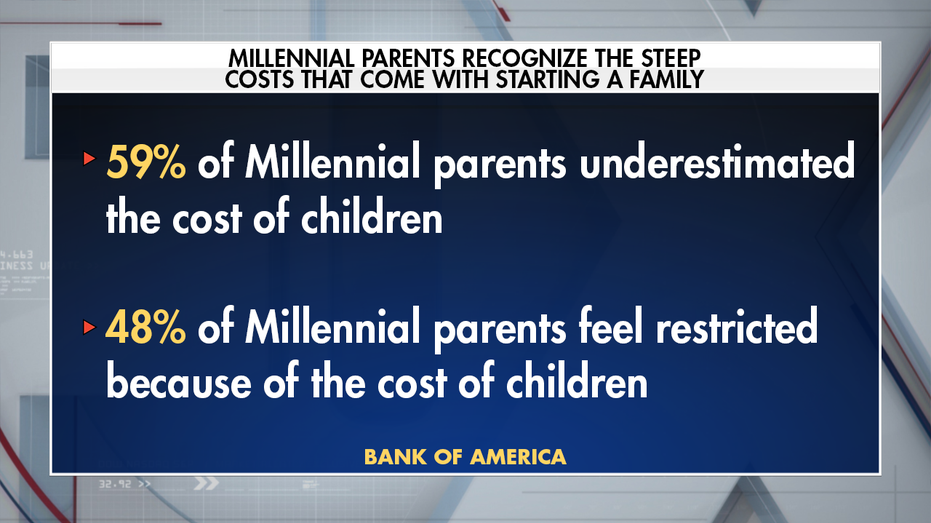
Millennials weren't the only generation that thought of finances before they started a family, but they did think about it more, according to Bank of America's study, which found that 58 percent of these young parents considered their income before they started a family.
BAD CREDIT MIGHT MAKE MARRIAGE A LONG SHOT
Gen X respondents, on the other hand, were less likely to consider finances by a slight margin – 49 percent. Baby Boomer respondents were the least likely to consider finances out of the group at 46 percent.
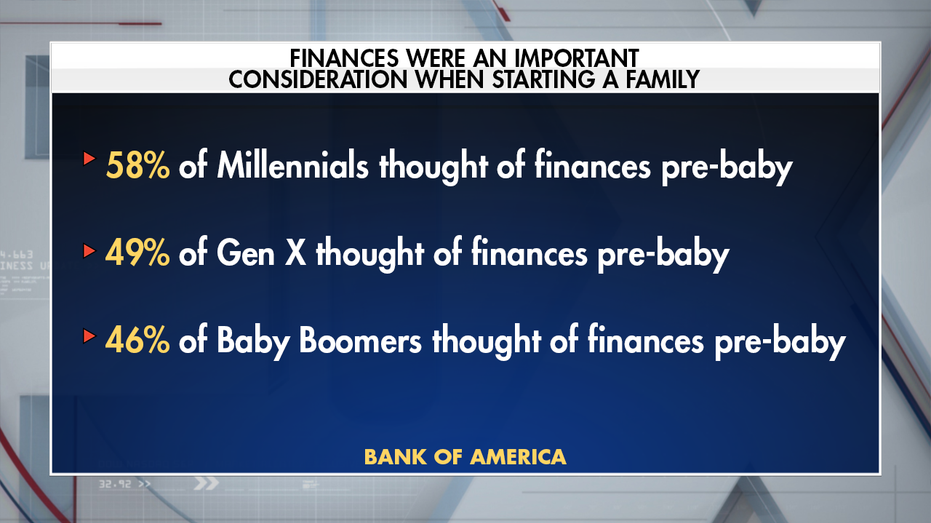
"On the whole, their [millennial] habits are encouraging, and their savings are growing. But at the same time, they're still carrying substantial debt and juggling competing responsibilities and pressures that make it hard for them to feel secure," said Andrew Plepler in Bank of America's study to explain why Millennials are so concerned about money.
Bank of America's study also found that millennial parents are likely to carry debt than their childless counterparts at 80 percent versus 72 percent.
GET FOX BUSINESS ON THE GO BY CLICKING HERE
Living with burdensome debt has contributed to major financial stress for millennial parents as well. Forty-four percent admitted they are stressed about not saving enough while 36 percent are stressed about saving for their child's future education.
Sending a child to a four-year university with room and board for a single academic year costs around $20,090 at a public college and $45,370 at a private non-profit college, according to the USDA, which isn't factored in the government agency's cost of raising child estimate – $233,610.
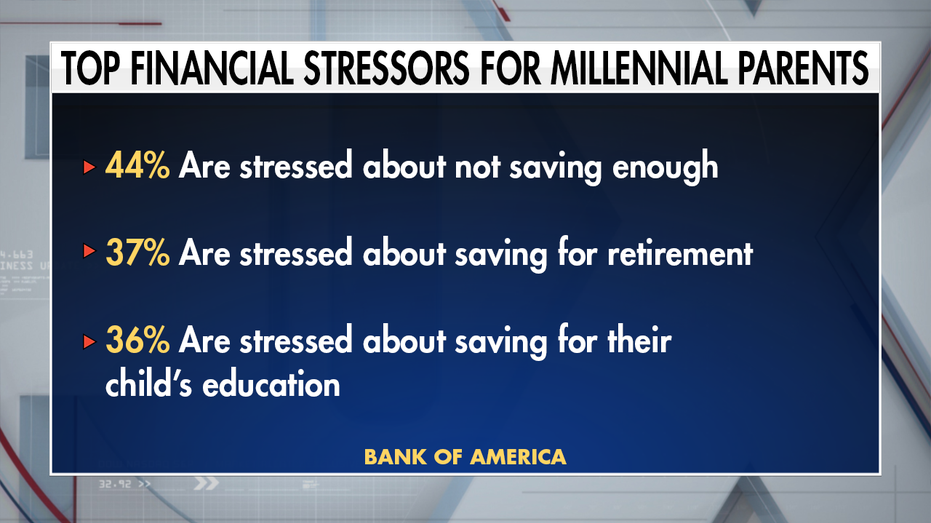
Despite their concern for paying their child’s college tuition, 44 percent said if they came across $10,000 they would spend it to pay down their current debts rather than put it away for their child's education. Only eight percent reported they would do the latter.
CLICK HERE TO READ MORE ON FOX BUSINESS
It's not just millennial parents who are being stressed out over debt and the cost of children. Twenty-one percent of overall respondents said they feel like they can't welcome children or grow a family because they have debt. Another 21 percent said they feel like they won't be able to get married for the same reason.





















